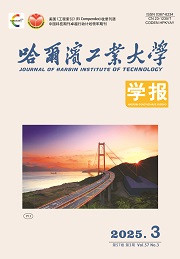| 引用本文: | 曾小华,牛超凡,宋大凤,纪人桓.燃料电池汽车深度节能分析[J].哈尔滨工业大学学报,2021,53(7):77.DOI:10.11918/202006106 |
| ZENG Xiaohua,NIU Chaofan,SONG Dafeng,JI Renhuan.Deep energy-saving analysis of fuel cell vehicles[J].Journal of Harbin Institute of Technology,2021,53(7):77.DOI:10.11918/202006106 |
|
| 摘要: |
| 为有效提升燃料电池汽车整车经济性,仿真分析了不同构型因素对整车经济性的影响,基于提出的理论氢耗模型确定氢耗影响因素,并依次对各影响因素进行微观经济性分析。采用遍历权重系数动态规划方法确定所研究车型的氢耗极限,以探究控制策略因素对整车能耗的影响。研究终端约束动态规划中成本函数的确定方法,并基于此方法实现深度全局寻优。研究结果表明:有无超级电容对整车经济性影响不大,但FC+B构型相较于FC+B+C构型具有更好的经济性;从微观经济性角度定量分析出燃料电池效率、电机效率、滚动阻力系数、整车质量及再生制动策略对整车经济性影响的重要程度;功率跟随控制策略能较好地发挥整车经济性。对燃料电池汽车进行深度节能分析,揭示了提高整车经济性的有效途径,可为构型和部件的选择及控制策略的制定提供有效的理论依据。 |
| 关键词: 车辆工程 燃料电池 构型优选 微观经济性分析 动态规划 |
| DOI:10.11918/202006106 |
| 分类号:U462.2 |
| 文献标识码:A |
| 基金项目:国家重点研发计划(2018YFB0105300) |
|
| Deep energy-saving analysis of fuel cell vehicles |
|
ZENG Xiaohua,NIU Chaofan,SONG Dafeng,JI Renhuan
|
|
(State Key Laboratory of Automotive Simulation and Control (Jilin University), Changchun 130025, China)
|
| Abstract: |
| To effectively improve the fuel cell vehicle economy, it is necessary to systematically explore how to carry out deep energy saving. First, the impact of configuration on fuel economy is analyzed by simulation, and then based on the theoretical hydrogen consumption model, the influencing factors of hydrogen consumption are determined and the microeconomic analysis of each influencing factor is carried out in turn. Finally, the hydrogen consumption limit of the vehicle is determined by ergodic weight coefficient dynamic programming method to explore the influence of control strategy factors on vehicle energy consumption. In addition, the method to determine the cost function in terminal constrained dynamic programming is studied, and the deep global optimization is realized based on this method. The results show that, from the configuration point of view, the presence or absence of super capacitors has little effect on the economy of the vehicle, but FC+B configuration has better economy than FC+B+C configuration. From the microeconomic point of view, quantitative analysis of different factors affecting hydrogen consumption reveals the importance of each factor on vehicle economy. From the control strategy optimization point of view, the power following control strategy can better play the vehicle economy. The deep energy-saving analysis of fuel cell vehicles from different perspectives reveals an effective way to improve the vehicle economy, and also provides an effective theoretical basis for the selection of configuration and components and the formulation of control strategy. |
| Key words: vehicle engineering fuel cell configuration preference microeconomic analysis dynamic programming |







